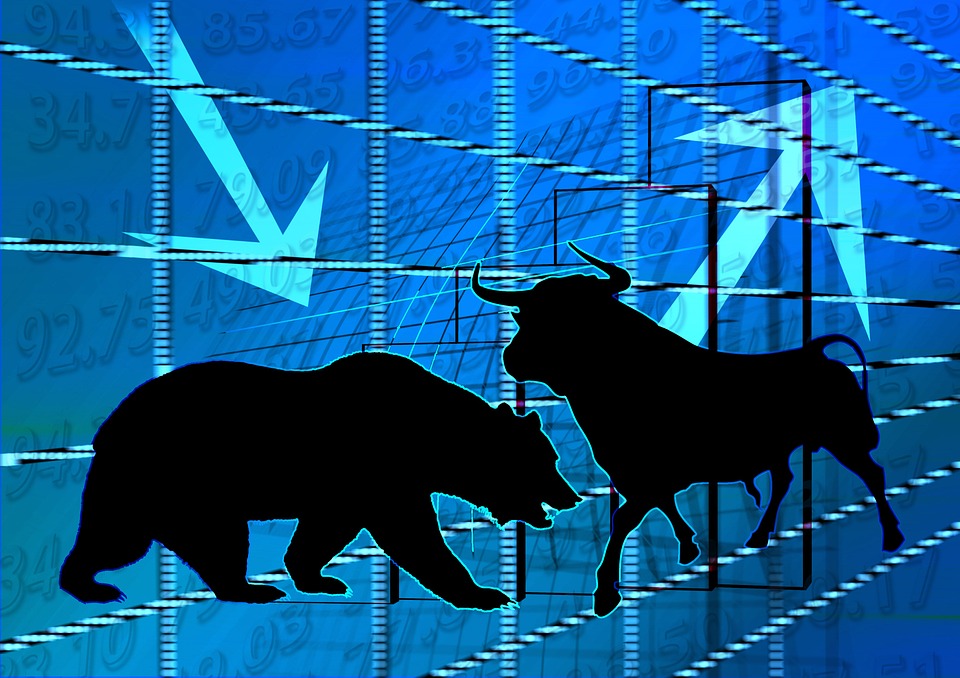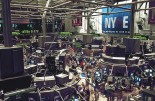Swissquote: Caught between the devil and the deep blue sea
Swissquote: Caught between the devil and the deep blue sea

By Ipek Ozkardeskaya, Senior Analyst, Swissquote
Released last Friday, the US jobs data wasn’t brilliant in September. The US economy added less than 194’000 new nonfarm jobs compared with the 500’000 expected by the analyst. The jobless rate fell to 4.8% from 5.2% printed a month earlier, but that was mostly because people left the workforce, rather than finding a job.
And the worse of all is that the bad data couldn’t be perceived as ‘good for the market’, as even a second consecutive month big miss on US jobs figures, which hinted at a slowing recovery in the US labour market, wouldn’t get the Fed to change its mind on tapering its bond purchases; the positive pressure on inflation is simply too strong.
With slowing recovery in US labour market and strong inflationary pressures, the Fed is caught between the devil and the deep blue sea.
But hey, some Fed doves are still reluctant to clear the skies as the soft jobs figures bring in the idea of a dovish taper from the Fed. Anyway, we will have a look into the Fed’s latest meeting minutes on Wednesday, which should provide some clarity on what will hit the fan in a couple of weeks.
US crude past $80pb and no signs of a slowing rally
The barrel of US crude is now trading above the $80 level and given the global energy crunch and a cautious OPEC, there is little that could halt the positive trend, other than worsening growth expectations.
In this respect Goldman Sachs cut its growth forecast from 5.7% to 5.6% for this year and from 4.4% to 4% for the next. But on the other hand, India warned that it has no more than a couple of days worth of coal reserves left, German fuel reserves are running out of fuel, and China unloaded an Australian coal shipment despite an important ban on Australian imports, and their morose relationship of nowadays.
All in all, it looks like the oil bears are good for hibernating… bad news for inflation.
Bears vs bulls
Major US indices closed Friday’s session in the red. The S&P500 slid a meagre 0.19%, while Nasdaq led losses with a 0.51% slide, although they were up for the week. Energy companies did well of course, the biggest gainer was APA, which jumped 7% on Friday, while Exxon gained more than 2.5%, as FAANG stocks were mixed with small gains or losses.
And we’ll see if it’s the bulls or the bears taking the lead this week, as earnings season kicks off!
US markets are closed today, but from tomorrow we will start watching the third quarter earnings creep in with the US big banks that will announce their results first, as usual. We may see some two-sided volatility in the coming days, and further rise in US yields.
The US 10-year yield has now spiked above the 1.60% mark which is expected to encourage a ‘wave of new selling by convexity hedgers’, and an accelerated rise in US yields could further weigh on growth stocks.
Q3 earnings seen higher despite a challenging quarter
Regarding the earnings, we had a rough quarter with global shortages, slow logistics, bottlenecks, empty shelves, energy crunch, and high energy prices, but the expectation is still a 28.3% profit growth for the S&P500 companies; bank and energy company earnings could boost the overall performance to cover up for the others.
An increase in profits would be the fifth consecutive increase and the longest winning streak in more than 15 years, which is not bad at all for a world in crisis!
Where are the ECB hawks?
Germany will release the final inflation data for September on Wednesday, and the number is a scary 4.1% rise year over year.
Inflation in Europe is at such levels that it’s difficult to believe that the European Central Bank (ECB) will hold on to its soft monetary policy for too long. At some point, the doves may give in to the hawks, and that could trigger a rebound in the single currency against the US dollar.
I would expect to see the EURUSD consolidate, and recover from the 1.15 support, especially if the Fed decides to carry on with a dovish taper due to the slowing jobs recovery in the US.









